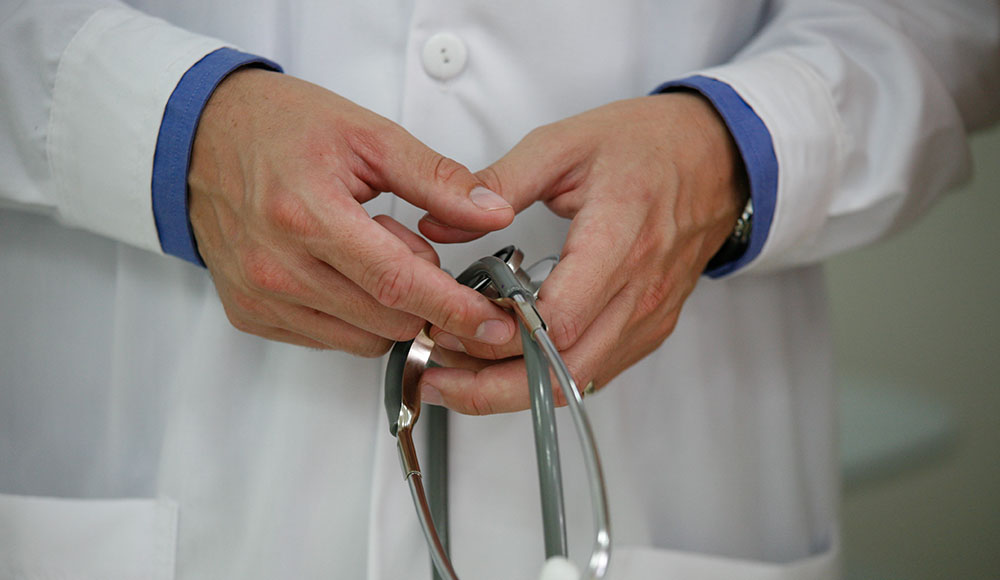The December killing of United Health’s CEO Brian Thompson, by alleged shooter Luigi Mangiano, just outside of the annual investor’s conference in NYC, has pulled the bandaid off of a gaping wound impacting millions of Americans—deep disappointment with America’s profit-before-people model of healthcare.
Hank Abrons, 84, a retired physician from Berkeley, was surprised that a fellow American would commit a murder over frustration with America’s healthcare system. He was less surprised by the expressions of anger about America’s subpar health insurance industry.
“This is a teachable moment,” Abrons said. “While people’s attention is on this, we want to teach them that we can change the system through legislation.”
Abrons may no longer personally care for patients in his office these days, but he spends almost every waking hour advocating for them to get the best possible care. Abrons, a member of Physicians for a National Health Program, believes every American is entitled to healthcare and says a single-payer system is the way to ensure that they get it.
“For 40-plus years, I fought the battle everyday,” said Abrons. “Sometimes I fought with insurance companies. Sometimes I fought with a system that developed in a very fragmented, unorganized way that opened the doors for profiteers to milk the system and make money.” That, he explained, is how the U.S. went from a barter system in the 1920s to the “mess we have now.”
During Abrons’ tenure as a public health physician, many of his patients were on the lower end of the socioeconomic spectrum. “I struggled to get the best care that I could for my patients with the help of my entire team,” he said. “I went into medicine and was educated to believe that everyone deserves health care, that it should be of the highest quality possible, and that money should not prevent people from getting the care they need.”
When asked about the resistance to a single-payer system, Abrons explained the depths of misinformation campaigns that the privatized healthcare industry promotes—keeping Americans afraid and uninformed. “In a single-payer system, hospitals, clinics and doctors would exist as they do now,” he said.
The caveat is that medical facilities would operate on a non-profit basis and there wouldn’t be shareholders. “Shareholders are people who buy shares in for-profit corporations,” said Abrons. “We don’t have shareholders dominating the finances of our fire departments, police departments, public schools and public libraries.”
In the system Abrons and many other physicians are fighting for, there wouldn’t be high-paid business executives with base salaries exceeding $1 million. Instead, medical professionals would run the show and make the decisions about how best to care for patients. “It’s a people-before-profit model,” Abrons said. “Those currently in the private insurance agency could use their transferable skills for another sector and Americans could get better healthcare.”
Finally, and perhaps most importantly for companies trying to stay afloat, Abrons said a national, single-payer system is cheaper.
“Right now communities are in crisis as school boards are struggling to pay the rising prices of healthcare insurance and so are most companies,” Abrons said. “A single-payer system would save everyone money.” Abrons estimates it would be at least $1,000 cheaper per person and people would be insured regardless of their employment status.
Paulina Lares, 41, relies on her husband’s employer for the healthcare needs of herself and her two teenage daughters. When Lares began suffering from recurring debilitating swelling in her knees and pain in her joints, she went to the doctor in search of answers.
“He told me that I was young and healthy and that I shouldn’t worry,” said Lares. “He said I could come back when I had my next episode of swelling. It was so frustrating because it was hard to get an appointment in the first place and I didn’t know how to predict when my next episode would happen.”
This was Lares’ first encounter with the American healthcare system since she moved from Guadalajara, Mexico, to Lafayette with her husband and daughters a few years before the pandemic. She worried about her ability to properly advocate for herself to get the care, or at least the tests she needed, in her second language. Lares didn’t give up. Instead she switched doctors.
“The next doctor was good. She listened, did the testing and diagnosed me with the autoimmune disease—rheumatoid arthritis,” Lares said. Now she keeps up with her medicine routine with her primary care doctor in the U.S. while visiting a specialist each year in Mexico. The differences between the two systems, she said, are vast.
“The first thing my rheumatologist in Mexico told me was, ‘Don’t worry, everything’s going to be alright,’ and that made me feel so relieved,” Lares said. “I believe doctors in the United States are good, but the system is broken. They have many back-to-back patients. When we go, we need to have a list and rush.”
Lares agrees with Abrons on the importance of a people-before-profit model of healthcare. In the meantime, Lares is grateful to be able to cross the border to stay healthy.




Kudos to Dr Hank Abrons for making this his life mission and never wavering from his goal to see single payer. Then, in addition, I wobder what would it take to integrate functional medicine into the narrow bandwidth allopathic model. My friend is newly diagnosed with diabetes. We said it’ll be great if they put you on metformin while you sort yourself out and then you can wean yourself off the drug. Great! They put her on metformin. Next we said be sure to take Q10 supplement now though, since metformin uses that liver pathway which will deplete your natural Q10 and you won’t know until you’re getting muscle cramps (who needs it!).
So please, can we aim for integrated systems, integrated medicine, intelligent design, where we stop pretending only allopathic medicine is “real” science.